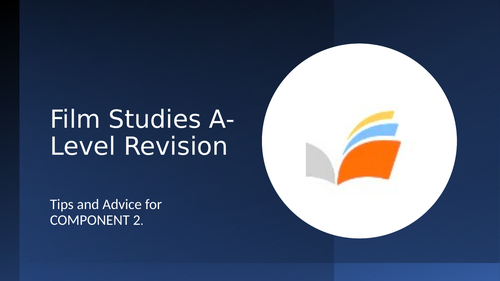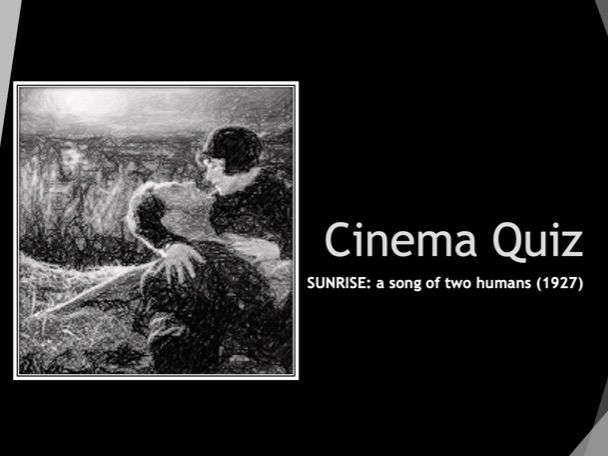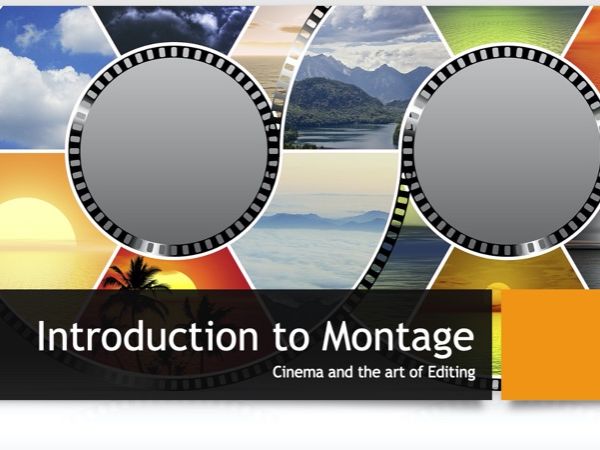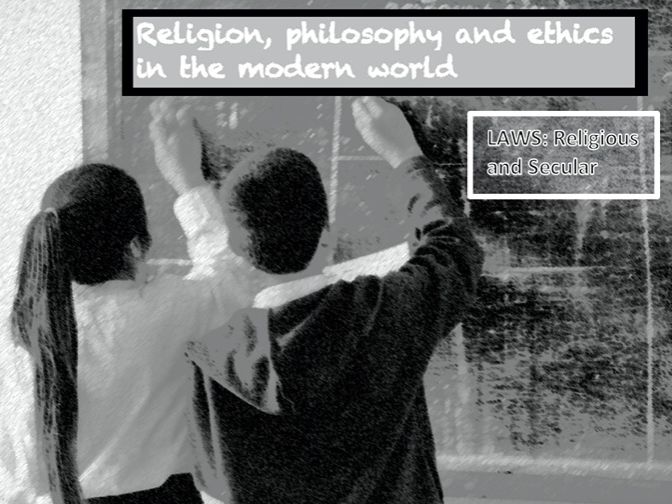57Uploads
12k+Views
2k+Downloads
All resources
Sale

Religious Versus Secular Laws
This 38 full color **interactive **slide presentation can be used to teach many concepts pertaining to religion and society. It explains the relationship between modern states (primarily the United States and Great Britain) and religions (with focus on Christianity & Islam). Concepts such as secularism, liberalism, theocracy and apostasy are included. Religious teachings are used and analysed, so that students are taught to demonstrate knowledge of **religious approaches to law **as well as applications and analysis. Exam practice questions are provided as well as guidance on how to answer them.
This is also useful for citizenship and cultural studies courses.
Sale

Christianity, Crime and Punishment
This 23 slide full colour animated PowerPoint Presentation introduces students to the **Christian outlook on crime & punishment (including the concepts of retribution, deterrence and rehabilitation).
It offers an open and questioning approach that allows students to weigh different outlooks and consider the concept of ‘crime’ and the reasons for punishment.
It prompts discussion and can be used to stimulate reflection.

EDUQAS FILM STUDIES A LEVEL REVISION, Component 1C. British Films
This is a fully animated, full colour interactive 32 slide Power Point Presentation.
It provides an excellent lesson plan for a two hour lession, and includes four practice questions from past papers, with lots of suggestions on how to tackle 'ideologies’ questions. It suggests some binary analyses of the films Trainspotting and Fish Tank and provides some indicative content tips from the exam boards.
Much of the content is based on advice from EDUQAS Film Studies examiners.
Bundle

EDUQAS FILM Spectatorship Bundle
This collection of resources provides a range of
classroom ready resrouces to tackle the FIlm Studies A Level Component 1B. - Spectatorship Topic.
The Films referenced and used as examples include No Country for Old Men, Carol and Winter’s Bone. There is also an introductory PowerPoint with an overview of what examiners mean by ‘Spectatorship’ and clear guidance on how to apply it to specific films.
There is a Test included as well.

EDUQAS A Level FILM STUDIES: Component 2 Revision
This 37 full colour slide show (PowerPoint Presentation) provides an overview of the Component 2 - Global Cinema exam. It offers many detailed tips for candidates, and supports their work on the following films: Mustang (Erguven), Timbuktu (Sissako), Sisters in Law (Longinotto), Sunrise (Murnau) and Fallen Angels (Wong).
There are interactive questions allowing for students to get involved and to be fully engaged for an entire two hour lesson.

MUSTANG (Erguven, 2015) A Level Film Studies Revision PowerPoint
This 69 slide full-colour interactive PowerPoint Presentation covers very targeted learing objectives for the EDUQAS A Level Film Studies Specification on Global CInema. Objectives include: Core Study Areas (Mise-en-scene, Social and Political Contexts, Reception, Exam Questions and Mark Schemes, and Production notes.
This resource will be used in a two-hour lesson and promotes discussion of key symbols and themes, as well as allowing for close analysis of mise-en-scene.

CAROL (2015, Todd Haynes) A Level Film Studies Resource
This is a 63 slide full-colour interactive PowerPoint Presentation.
It provides a two hour lesson plan covering the production context, social & political contexts, reception,** spectatorship ** (including past exam questions, Hall’s reception theory and how to apply it to CAROL, viewer positioning, binaries in the narrative, and symbolism in the mise-en-scene.
This is useful to EDUQAS A Level Film Studies Tutors but also to MEDIA studies teachers.
***Also useful for LGBTQ+ History Month **

Director Andrea Arnold - Her Auteur Signature
Studying FISH TANK (UK, 2009) for the Film or Media A-Level?
Or perhaps you are just looking for a film with empowered female leads?
Maybe you want to think about the concept of an ‘auteur’ director?
This resource also gives some tips for studying ideology in films.
Suited to 14+ age groups, this resource can be used for the EDUQAS Film Studies A-Level or AS Level, or just as an introduction to the concept of ‘Auteur’ directors or ideology.

Covid 19, Change and Technology: THE MACHINE STOPS
E.M. Forster’s 1909 short story about a future dystopia provides an excellent stiumlus to explore many issues that impact young peoples’ lives in 2021.
THE MACHINE STOPS (1909) paints a picture that allows us to reflect on a multitude of topical questions:
how far has technology helped us to advance, individually and socially?
how does technology impact our relationships to our bodies and senses?
how does technology affect our relationship with the natural world?
how do metaphor, irony and allegory work to convey social messages?
how does technology impact our ability to gain knowledge of what is true and to separate fact from fiction?
Forster’s prophetic short story was extremely prescient in its vision of a future society in which people would be confined indoors, socially distanced and isolated even from their closest kin, and in which all connection to people and the world is mediated through a “machine”. What happens when Kuno decides he wants to escape the machine and to live by his own wits?

Film Studies A-Level Revision Quiz (Sunrise, 1927)
This is a great revision exercise for the EDUQAS Film Studies A-Level, Component 2, Global Filmmaking Perspectives: Silent Cinema.
This is a 20 slide Quiz presented in PowerPoint.
It works well for team or small group competitions.

Cinema and the Art of EDITING
For both film and media studies, this 14-slide full colour, interactive PowerPoint presentation provides a brief introduction to the basics of film editing (montage).
The six elements of an edit are introduced, as well as a discussion of pace, style of editing and parallel editing (cross cutting).
Helpful links to YouTube videos provide illustrative examples of the terminology presented.
The Presentation - along with Q&A and examples - should fill a 1 hour lesson.
Sale

Understanding Religious and Secular Laws
This is a 30 slide colour PowerPoint Presentation, with animated slides and interactive questions. The last several slides are designed for exam preparation for OCR General Certificate of Secondary Education.
It is also useful for discussing broader questions, such as the differences between morality and law, or secularism and theocracy.
Learning Outcomes:
Understand the difference between secular and religious laws.
For United Kingdom GCSE Religious Studies (9–1)
Unit J625/06: Religion, philosophy and ethics in the modern world from a Christian perspective
Unit J625/07: Religion, philosophy and ethics in the modern world from a Muslim perspective

Understanding Tolerance Presentation
This is a full-color 27 slide interactive PowerPoint presentation. It forms the basis of an assembly or a full two hour lesson (depending upon time taken for class discussion/debate).
It is designed to prompt discussion and debate and to get youngsters thinking for themselves and reflecting on the complexities and problems associated with the concept of ‘tolerance’. It encourages them to actively define tolerance, and to reflect upon their definition, based on careful analysis of real life case studies and examples.
This lesson can be used can be used in an American or British context. It would work with a wide variety of age groups and can help in teaching citizenship, PSHE, RS, or British Values.
It could also work well as a starter exercise for the study of Liberalism (politics).

Movie-Themed Treasure Hunt
This is an activity for team or pairs from Years 11+ and involves an active search for the answers, which are interdependent, so that one answer leads to another as students progress.
The game could be set up as a race to the finish line. Depending upon the research abilities and cinematic specialist knowledge of the team, the game could take anywhere from 15 minutes to 45 minutes to complete.
Included in this resource pack is: a treasure hunt ‘map’, two styles of answer sheets for students/teams, and an answer key for teachers.

Analysing Class representations in TRAINSPOTTING and FISH TANK (Arnold, 2009)
For **FILM STUDIES A-LEVEL **
This class exercise allows students to consider class representations in the 2009 UK independent film Fish Tank.
It will prompt discussion and allow students to think about how a variety of characters are represented.
The objective is for students to fill in their worksheets independently or in pairs, and then for each individual or pair to feedback to the whole group. In this way, a wide range of answers and insights can be explored.
The exercise could fill nearly an entire 1 hour lesson, depending upon the group size.

Winter's Bone - binary analysis
This chart helps to understand how the narrative conflicts in Winter’s Bone are related to different ideological positions, with respect to values such as community versus individual rights, ‘omerta’ versus whistleblowing, and ‘honour’ versus responsibility/ humanity.

What is Tolerance?
This exercise provides interactive discussion prompters and tasks that help students to reflect carefully on what they think tolerance really means. It should form the basis for two 1-hour lessons, for secondary students between ages 14 - 18.
The aim is to foster a critical discussion about tolerant societies, and to help students to reflect upon whether there is a distinction between tolerance and cultural/ moral relativism.
How can tolerance be a principled approach that is fair to both individuals and communities?
Is tolerance fair to **all **citizens?
Does a tolerant state promote genuine** intellectual** diversity?
How can a state promote tolerance without becoming an intolerant state, i.e. without promoting censorship of controversial ideas?

A-Level Film Studies: Sunrise (Murnau, 1927) Close Study
This GERMAN EXPRESSIONIST film from the late silent period showcases many features of German Expessionist cinema, as well as being a key example of a film made in Hollywood for an American audience. Made in 1927 by Fox Studio, this film forms the basis of a lesson around German Expressionist cinema and its visual techniques. This 32-Slide presentation provides lots of detail as well as explanation about how certain visual effects were achieved.
Ideal for teachers fdollowing the EDUQAS Film Studies A-Level, Component 2.

New Hollywood of the 1970s PowerPoint Presentation
This is a full color 20-slide presentation with links to helpful film clips as illustrations.
It forms a class lesson for A-Level film Studies or equivalent and gives helpful context for films produced at this exciting, director-led period of of Hollywood cinema.
Sale

RELIGION, HUMAN RIGHTS & SOCIAL JUSTICE
Ideal for teaching and revising the
AQA Religious Studies A, Component 2 – thematic studies
Theme F: Religion, human rights and social justice (GCSE).
This 56-slide PowerPoint presentation covers the AQA curriculm and textbook’s main definitions and helps
GCSE students prepare a good set of answers for the exams.
It will encourage critical thinking about the examination board’s definitions and assumptions at certain points, but will not prevent students from saying the “right” answers needed to pass the examination.




















